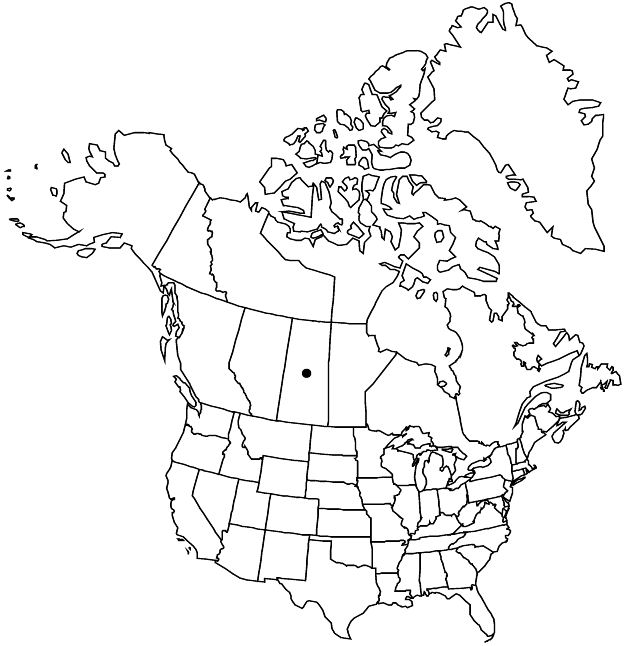Difference between revisions of "Crataegus sheila-phippsiae var. saskatchewanensis"
J. Bot. Res. Inst. Texas 1: 1079, plate 7.4c, fig. 25. 2007.
Common names: Saskatchewan hawthorn
Endemic
FNA>Volume Importer |
FNA>Volume Importer |
||
| Line 1: | Line 1: | ||
{{Treatment/ID | {{Treatment/ID | ||
|accepted_name=Crataegus sheila-phippsiae var. saskatchewanensis | |accepted_name=Crataegus sheila-phippsiae var. saskatchewanensis | ||
| − | |accepted_authority= | + | |accepted_authority= |
|publications={{Treatment/Publication | |publications={{Treatment/Publication | ||
|title=J. Bot. Res. Inst. Texas | |title=J. Bot. Res. Inst. Texas | ||
| Line 28: | Line 28: | ||
|elevation=700–1000 m | |elevation=700–1000 m | ||
|distribution=Sask. | |distribution=Sask. | ||
| − | |discussion=<p>The main range of < | + | |discussion=<p>The main range of <i></i>var.<i> saskatchewanensis</i> is the Cypress Hills; records are known also from the prairie regions of southern Saskatchewan. The differences from the type variety are considerable and constant, and <i></i>var.<i> saskatchewanensis</i> is perhaps more similar to <i>Crataegus chrysocarpa </i>var.<i> chrysocarpa</i> although where sympatric its fruit is larger.</p> |
|tables= | |tables= | ||
|references= | |references= | ||
| Line 37: | Line 37: | ||
-->{{#Taxon: | -->{{#Taxon: | ||
name=Crataegus sheila-phippsiae var. saskatchewanensis | name=Crataegus sheila-phippsiae var. saskatchewanensis | ||
| − | + | |authority= | |
| − | |authority= | ||
|rank=variety | |rank=variety | ||
|parent rank=species | |parent rank=species | ||
| Line 52: | Line 51: | ||
|publication year=2007 | |publication year=2007 | ||
|special status=Endemic | |special status=Endemic | ||
| − | |source xml=https://jpend@bitbucket.org/aafc-mbb/fna-data-curation.git/src/ | + | |source xml=https://jpend@bitbucket.org/aafc-mbb/fna-data-curation.git/src/f50eec43f223ca0e34566be0b046453a0960e173/coarse_grained_fna_xml/V9/V9_1020.xml |
|subfamily=Rosaceae subfam. Amygdaloideae | |subfamily=Rosaceae subfam. Amygdaloideae | ||
|tribe=Rosaceae tribe Gillenieae | |tribe=Rosaceae tribe Gillenieae | ||
Revision as of 22:37, 16 December 2019
Plants shrubby, thicket-forming, 15–30 dm. Stems: thorns on twigs 3–6 cm. Leaf blades 2–4(–5) cm, at early anthesis little larger than flowers. Flowers: anthers white to cream. Pomes orange-red to bright red.
Phenology: Flowering May–Jun; fruiting Aug–Sep.
Habitat: Thickets
Elevation: 700–1000 m
Discussion
The main range of var. saskatchewanensis is the Cypress Hills; records are known also from the prairie regions of southern Saskatchewan. The differences from the type variety are considerable and constant, and var. saskatchewanensis is perhaps more similar to Crataegus chrysocarpa var. chrysocarpa although where sympatric its fruit is larger.
Selected References
None.
Lower Taxa
None.
